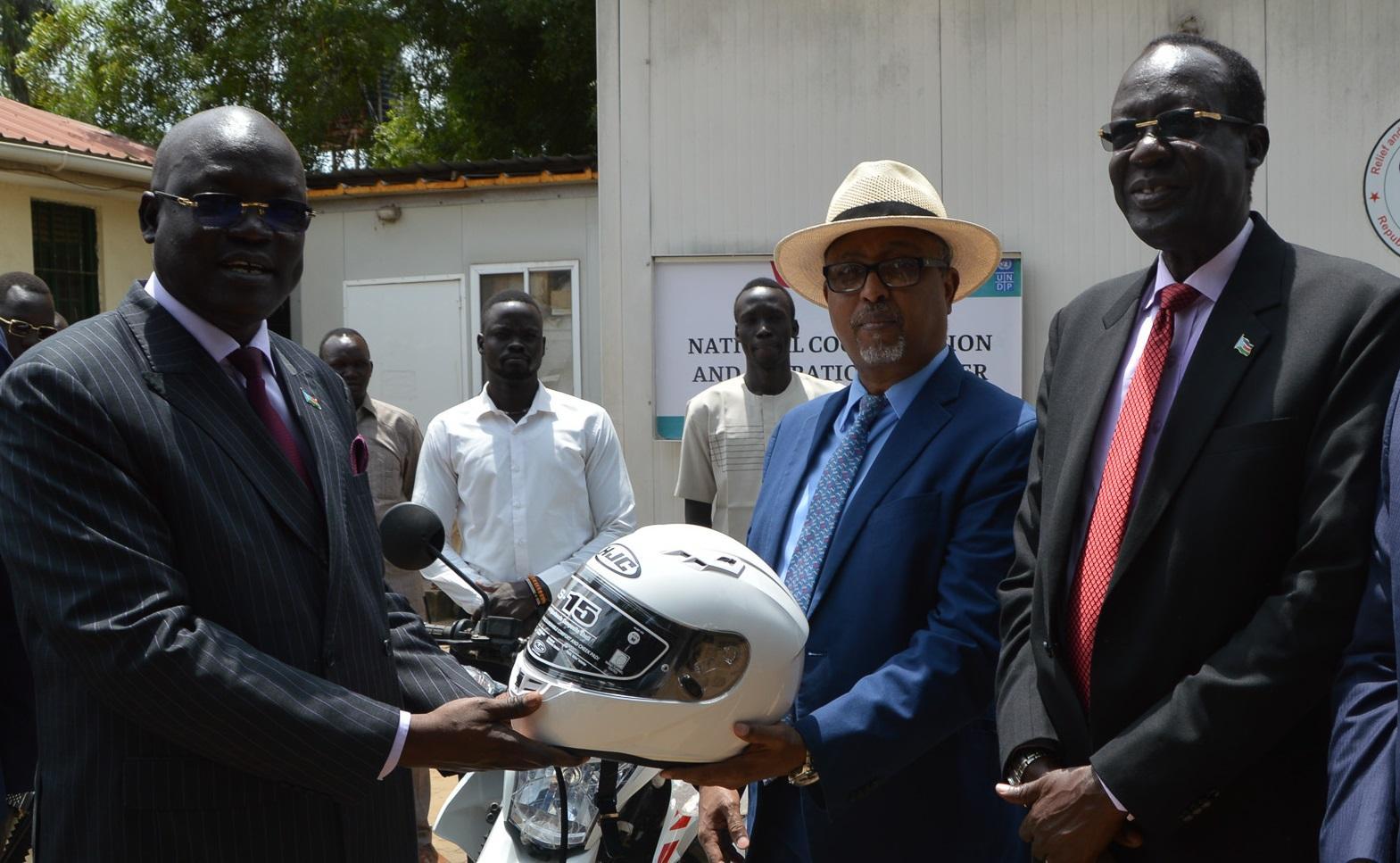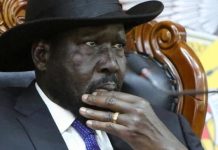Africa-Press – South-Sudan. The United Nations Development Programme (UNDP) in South Sudan on Thursday handed over 500 interlocking brick-making machines and 9 motorbikes to the Ministry of Humanitarian Affairs and Disaster Management to promote community-driven recovery and create sustainable livelihoods for returnees and host communities.
The motorbikes were delivered to the National Operations and Coordination Centre (NCOC) to improve mobility, coordination, and data collection efforts aimed at strengthening reintegration and recovery initiatives across the country.
Speaking during the handover ceremony in Juba, Albino Akol Atak, the Minister of Humanitarian Affairs and Disaster Management, said the project will, in the first phase, benefit returnees in six states, including Central Equatoria State, Northern Bahr El Ghazel, Western Bahr El Ghazel, and Upper Nile State.
“By equipping communities with tools to rebuild their homes, we are empowering them to rebuild their lives with dignity, stability, and hope for a better future. We are also creating job opportunities for youth and young people,” said Akol.
For his part, Mohamed Abchir, the Country Representative for the United Nations Development Programme, said the donation is a symbol of renewed hope for the displaced population who are returning home and striving to rebuild their lives.
“This initiative will allow the displaced population to reclaim their dignity, as it enables them to build their own homes, earn a decent living, and for communities to come together in unity and with a shared purpose,” said Abchir.
Meanwhile, Stephen Kueth Gach, Chairperson of the Relief and Rehabilitation Commission, said the community-driven initiative will empower returnees to build their homes, restore livelihoods, and generate income.
“An estimated 126,171 households will benefit from these projects. Out of this number, about 50,000 individuals will directly benefit from village savings and loan associations that will be created for beneficiaries,” said Gach.
“It will strengthen social cohesion by encouraging teamwork and shared responsibilities. More importantly, it symbolizes a shift from dependency syndrome to empowerment, from vulnerability to resilience,” he said.
Kachuol Benjamin Makoi, the Executive Director for the Relief and Rehabilitation Commission, said they have developed a durable solution and action plan to provide a coordinated and sustainable framework for addressing displacement and supporting recovery and integration.
“There are three components involved in durable solutions: livelihoods, which include agriculture, shelter, and sanitation; an enabling environment, education, and medical facilities; and sustainable solutions, infrastructure, rehabilitation, and recovery,” said Makoi.
For More News And Analysis About South-Sudan Follow Africa-Press






